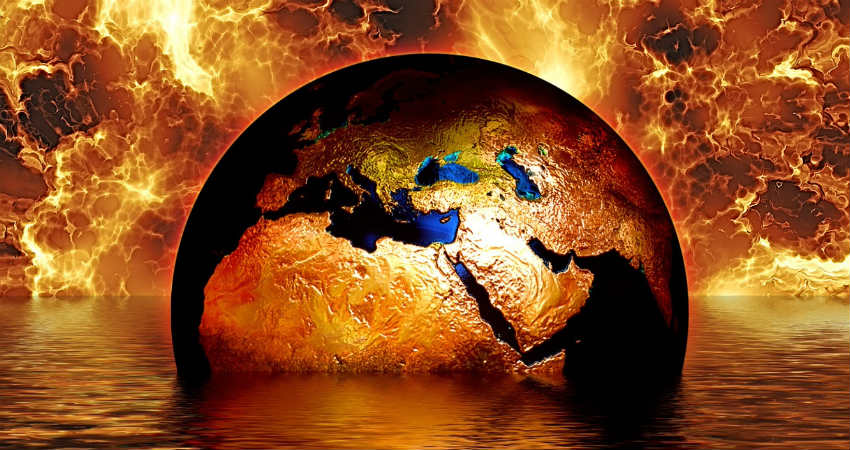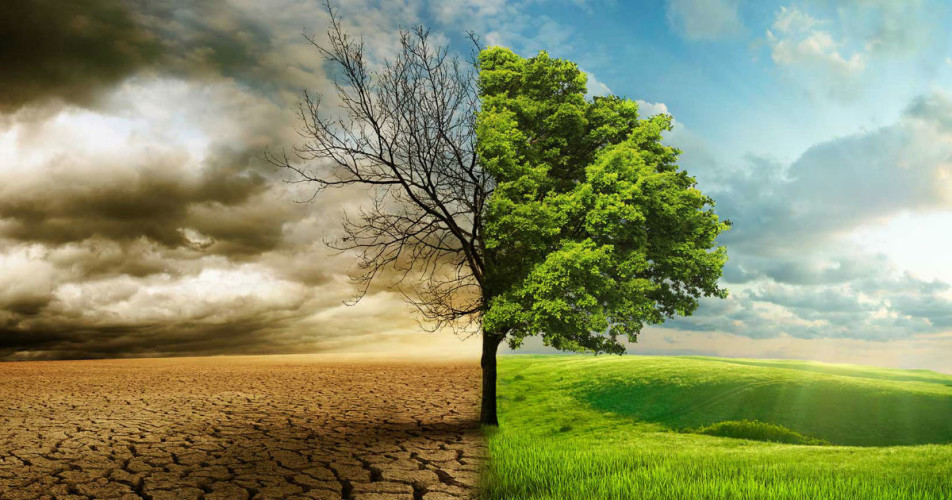
The idea that human activity might be contributing to changes in the global climate isn’t exactly new. It’s been around for at least a century. Very few people took the suggestion seriously at first, but the idea has caught on as decades have passed and attitudes have changed. Now, it seems that almost everyone accepts that there’s a connection between what we put into the atmosphere and what happens to weather. Everyone, that is, except big business leaders.
When we go looking for news about climate change or extreme weather, there are certain news sources we'd automatically look to and some that we wouldn't. We hope that our website is a trusted source to you in that respect. One publication you probably wouldn't expect to run feature-length articles about the weather, on the other hand, is the Financial Times. That's why we think it's significant that the business newspaper's website has just published an article asking whether science can prove a connection between climate change, extreme weather, and human actions.
The question asked by the Financial Times will sound facetious to some of our readers. Of course there's a scientific link between climate change and extreme weather, and of course there's a scientific basis for believing that humans contribute to both. Scientists have been trying to warn us about it for generations. One wonders how people imagine weather happens otherwise. Do they think it's like the "Weather Warning" online slots game, where there's no direct connection between what the player does and what the slot does in response? If weather was as random as the reels at Online Slots UK, scientists wouldn't waste their time studying it. There wouldn't be any point because there would be nothing to understand. The irony here is that as sophisticated as the mathematical formulas that underpin those online slots are, they're only a fraction as complicated as what happens to the weather. Weather always has a root cause, even if the root cause is a natural one.

If you're angry that the question is even being asked in 2021, try to take a step back. It's a ridiculous question, but it's important that it's being asked in such an unusual place. For a speculative piece like this to have ended up in the publication that it has, people who've never taken any interest in the environment before must finally have started asking questions. The article notes the spate of large-scale fires and floods that the world has endured in the past twelve months and asks if we can put them down to coincidence or whether we finally have to face up to the fact that something has to change. It asks scientists for proof. The tone of the article is almost as if the author is asking scientists to grant them permission to ask big businesses to change. If they want that endorsement, they already have it.
In July 2021, we saw unusually heavy flooding in China, Germany, and Belgium. Southern Europe is battling an unseasonably strong heatwave at the moment, leading to flash fires in Greece and Turkey. In every case, each extreme weather incident is either totally without precedent or at least without precedent at this time of year. Our North American readers might still have suntans and blisters from the out-of-season heatwave that struck in late May. There are examples from all over the world. "Extreme weather" is becoming an annoying media buzz phrase, but the public's increasing awareness of the term might get us somewhere in terms of people waking up to the idea that things have to change and fast.

Critics will point out that the planet experienced extreme weather long before humans worked out how to dump chemicals into the atmosphere or the sea. That's true. In fact, there was extreme weather on planet Earth long before humans even existed. Vast swathes of dry land were once underwater. Chunks of land bigger than some countries are now underwater. Natural phenomena can break out inside weather systems at any time and create havoc. The big difference in 2021 is the regularity with which it's happening. While we can't put all climate change down to the actions we take, we should at least ask ourselves how much our activity contributes to what's going on and whether our actions ever make a bad situation worse. If humanity has the capacity to look itself in the face and be honest, the answer to that question has to be "yes."
The article is correct that science has more to do. It would be enormously helpful if weather forecasts were more accurate. It would be fantastic if we could get advance warnings of extreme weather conditions long before they happen. Unfortunately, we're not there yet. We might get there a lot faster if science and research initiatives were adequately funded, and that's something that big businesses could get involved in. Even if the firms in question didn't care much about the environment until they were either affected by a flood or baked by the sun, they care now. It's better late than never. Rather than lecturing them about their past indifference, this would be a good time to talk to them about charitable initiatives and helping to make the world a better place for all of us.

"Climate change" does not mean "global warming." This past June was the warmest on record across the African continent, but Antarctica's sea ice levels recovered to their best level since 2015. It's hotter than usual in Africa but colder than usual in the Antarctic. The USA also had its hottest June on record, as did Australia and New Zealand. It was the second warmest June ever across Europe and also in Asia. Meanwhile, sea ice coverage in the Arctic is ten per cent lower than it was ten years ago. The pattern doesn't repeat everywhere, and what's happening with ice in the Arctic is worrying. Even if it were just a case of cold places getting colder and warm places getting warmer, though, that's still an issue. There's only so much heat the warmer places can take. There's only so much the Antarctic can freeze before ships can't pass through it. Whether it's global warming or global cooling, it's still a problem we need to find a solution for.
2021 might be remembered as the year that the world of business and the wider world in general finally said “enough is enough” and started to take meaningful action on climate change. If the Financial Times can reflect on the problem, so can everybody else. Denial doesn’t work anymore. Action might, and it’s time someone took some.


